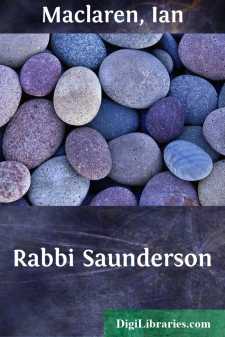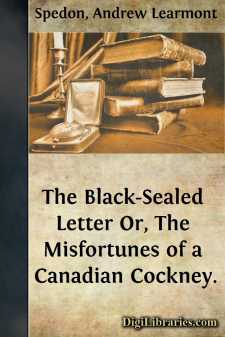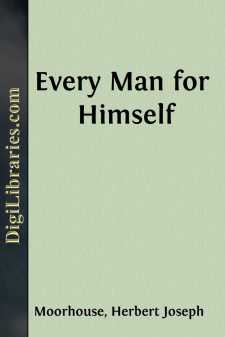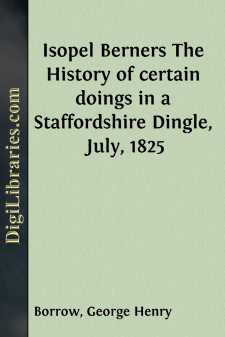Literary Collections
- American 84
- Ancient, Classical & Medieval 14
- Asian 1
- Australian & Oceanian 1
- Canadian 55
- Continental European 121
- English, Irish, Scottish, Welsh 179
- Essays 160
- General 24
- Letters 46
- Middle Eastern 1
Literary Collections Books
Sort by:
by:
Ian Maclaren
A SUPRA-LAPSARIAN Jeremiah Saunderson had remained in the low estate of a "probationer" for twelve years after he left the Divinity Hall, where he was reported so great a scholar that the Professor of Apologetics spoke to him deprecatingly, and the Professor of Dogmatics openly consulted him on obscure writers. He had wooed twenty-three congregations in vain, from churches in the black country,...
more...
by:
John Ruskin
PREFACE. [Pg v] The ladies to whom these letters were written have been, throughout their brightly tranquil lives, at once sources and loadstones of all good to the village in which they had their home, and to all loving people who cared for the village and its vale and secluded lake, and whatever remained in them or around of the former peace, beauty, and pride of English Shepherd Land. Sources they...
more...
The TURN of The TIDE "If you don't get the call you needn't come back here," said my wife to me as I stood upon the door-sill, bag in hand, and my hard-bought ticket in my pocket. "Well, dear one, I would be sure of it if they could only see the perquisite that goes along with me." "You must be more serious, Tom, if you expect great calls; but come inside a minute till I...
more...
Old London!—city of cities!—whose foundations were laid when the ancient Briton in his martial glory prowled among the dense forests whose foliage darkened the waters of the Thames, long ere the foot of the adventurous Roman had touched the shores of Albion; or the Dane and Saxon had established themselves within the strongholds of the British isles. Who has not heard of this great old city,...
more...
CHAPTER 1 IN MOONFLEET VILLAGE So sleeps the pride of former days—More The village of Moonfleet lies half a mile from the sea on the right or west bank of the Fleet stream. This rivulet, which is so narrow as it passes the houses that I have known a good jumper clear it without a pole, broadens out into salt marshes below the village, and loses itself at last in a lake of brackish water. The lake is...
more...
by:
Victoria Cross
CHAPTER I THE TAKU INLET It was just striking three as I came up the companion-stairs on to the deck of the Cottage City, into the clear topaz light of a June morning in Alaska: light that had not failed through all the night, for in this far northern latitude the sun only just dips beneath the horizon at midnight for an hour, leaving all the earth and sky still bathed in limpid yellow light, gently...
more...
CHAPTER I FOG Except for the lone policeman who paused beneath the arc light at the Front Street intersection to make an entry in his patrol book, Bay Street was deserted. The fog which had come crawling in from the lake had filled the lower streets and was feeling its way steadily through the sleeping city, blurring the street lights. Its clammy touch darkened the stone facades of tall, silent...
more...
by:
Charles Cotton
There is, peradventure, no more manifest vanity than to write of it so vainly. That which divinity has so divinely expressed to us—["Vanity of vanities: all is vanity."—Eccles., i. 2.]—ought to be carefully and continually meditated by men of understanding. Who does not see that I have taken a road, in which, incessantly and without labour, I shall proceed so long as there shall be ink...
more...
INTRODUCTION. I. The last century was yet in its infancy when the author of The Romany Rye first saw the light in the sleepy little East Anglian township of East Dereham, in the county distinguished by Borrow as the one in which the people eat the best dumplings in the world and speak the purest English. “Pretty quiet D[ereham]” was the retreat in those days of a Lady Bountiful in the person of...
more...
Delivered before the Alumni of Hamilton College, Clinton, N. Y., Wednesday, June 26, 1872 Twenty-one years ago in this house I heard a voice calling me to ascend the platform, and there to stand and deliver. The voice was the voice of President North; the language was an excellent imitation of that used by Cicero and Julius Caesar. I remember the flattering invitation—it is the classic tag...
more...











